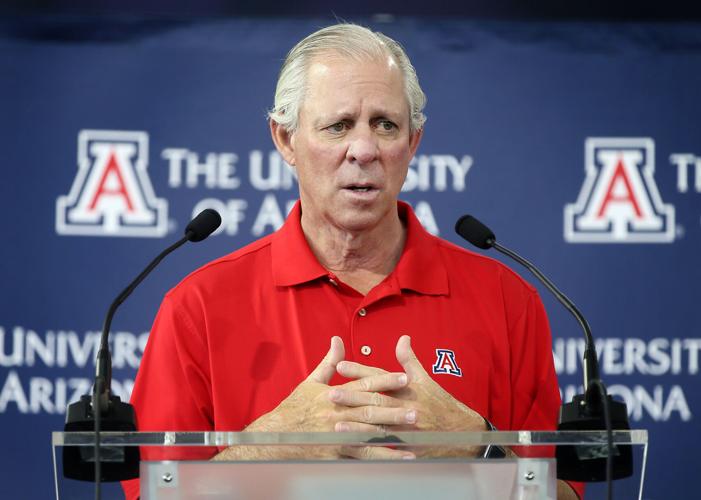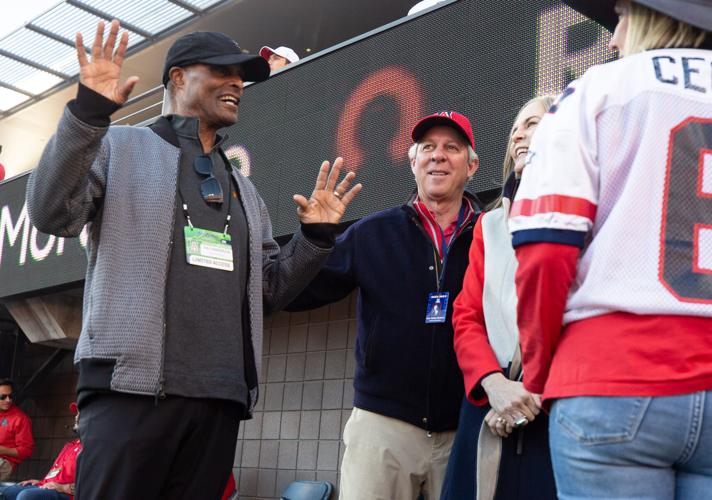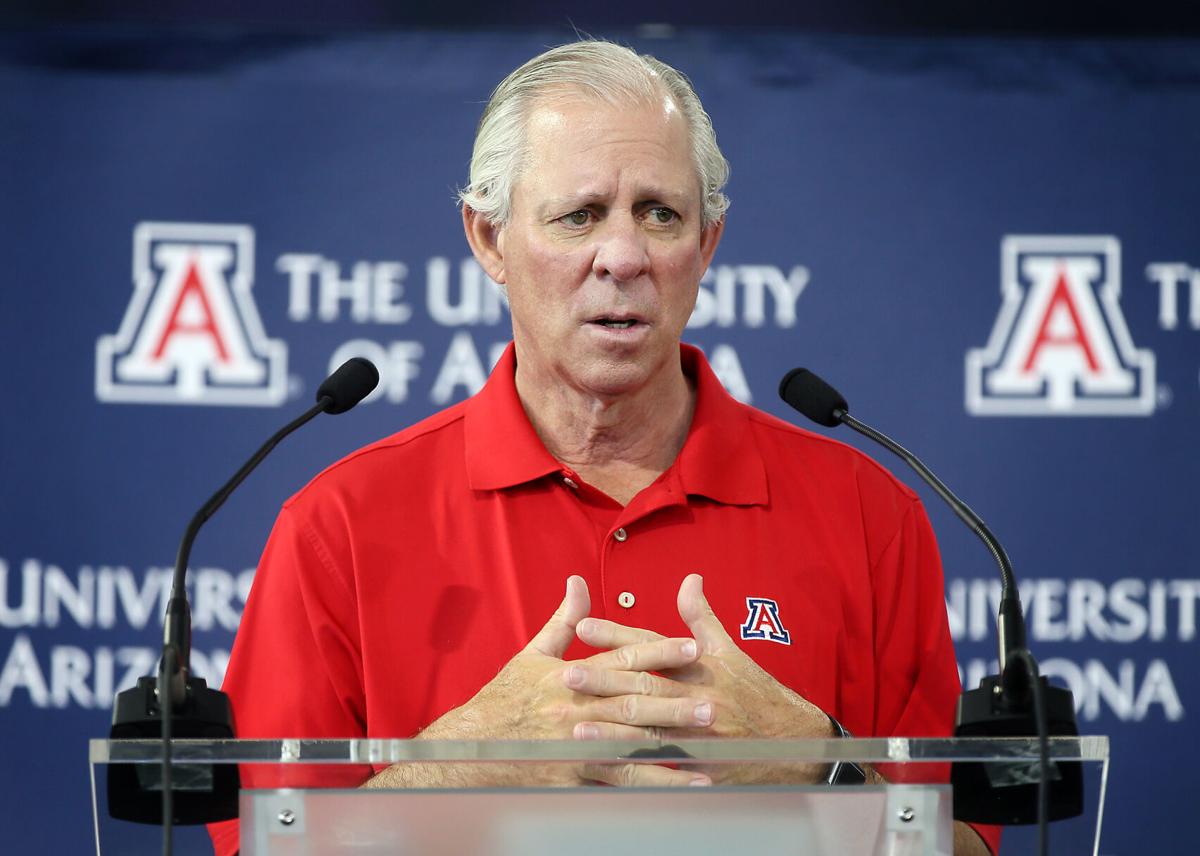Upon meeting with media Wednesday in Washington, D.C., Arizona president Robert C. Robbins was greeted with a familiar blaze of questions about the Pac-12’s future and its pivotal, still-ongoing media-rights discussions.
Robbins told multiple reporters that he didn’t know of any pending Grant of Rights agreement among Pac-12 schools, contradicting an earlier report Wednesday. According to Sports Illustrated’s Ross Dellenger, Robbins went on to say the Pac-12 wouldn’t get a deal as rich as the SEC or Big Ten but “if we win a bronze medal, I think we’d all declare victory.”
While also appearing on the SEC-focused “Paul Finebaum Show,” Robbins said he’s always been “very, very confident we would get a deal” and that “I don’t know exactly when, but I would say it’s a matter of weeks.”
They were the sort of uncertain answers that have long been common around the Pac-12, which has been fighting for its life since UCLA and USC announced nearly a year ago they were taking off for the Big Ten in 2024.
More questions, and maybe more uncertain answers, will be posed Thursday, when Robbins and the UA’s DC Center hosts a summit called “The Future of College Athletics.”
The event actually began Wednesday with a Capitol Hill reception with some elected officials and staff, and it will continue Thursday with panels to discuss ever-evolving trends in NIL, the transfer portal and, of course, conference realignment.
A discussion entitled “What’s really driving conference realignment” is scheduled to include SEC commissioner Greg Sankey and Wasserman executive Dean Jordan, while the opening discussion is simply called: “What comes next in the wild, wild west of college athletics?”
Robbins and NCAA president Charlie Baker are among the panelists scheduled for that one.

ASU athletic director Ray Anderson, left, greets Arizona president Robert C Robbins during the Arizona State-Arizona football game in Tucson last year. UA and ASU, along with Utah, agreed to leave the Pac-12 and join the Big 12 starting with the 2024-25 academic and sports calendar.
Before leaving for the summit in Washington, where college administrators have been lobbying for NIL-related guardrails, Robbins told the Star that the Wild West analogy is “absolutely true.”
“I think what most people are hoping for is some national, either law or set of laws, that will govern this,” Robbins said. “I know that in our conference, we’re going to have a lot of legislators or at least their staffs. … I think there will be a very good discussion and hope that there would be some legislation move forward by the end of the summer.”
Robbins said differing state laws are “creating an uneven playing field” in NIL, with some allowing schools to credit donors who give to collectives that pay athletes.
“I think the IRS is gonna have a lot to say about that,” Robbins said. “I don’t think you can pay into a deal with student-athletes and then get credit for giving to a non-for-profit entity. My understanding is that some of these collectives are going to seek (being) not-for-profit entities, but I think there’s a lot to be done about how this is all going to work.”
Arizona has two main collectives: Arizona Assist, which specifically benefits men’s basketball players; and the Friends of Wilbur and Wilma, which focuses on football and other sports. Robbins said the money the UA-focused collectives are raising is “fairly small” compared with some others.
“We’re competing with USC, which has a huge amount of money being paid to their players, all the teams in the SEC, the Big Ten, on and on and on,” Robbins said. “I think we were on this early. I think we did a good job of with our (Arizona) Edge program of educating students about what it means to have one of these deals in terms of financial planning and paying your taxes and looking at (a) contract.”
Robbins’ concerns could be discussed during a panel entitled “NIL: What is the state of play?” That discussion is scheduled to include Walker Jones, the executive director of the Grove Collective, which benefits Ole Miss athletes, as well as UA women’s basketball player Maya Nnaji.
Meanwhile, UA football coach Jedd Fisch and ACC commissioner James Phillips are scheduled to be on a panel discussing the transfer portal, whose popularity has picked up immensely in the NIL era.
Robbins said NIL has legalized what had already been going on in college sports.
“Now you’ve got this quote-unquote ‘pay-for-play’ thing,” Robbins said. “I think that’s still a gray area. You’re not meant to do it to entice players to come to your university. I’m finding it hard to believe that people aren’t doing that.”
<&rule>
The White House hosted the NCAA championship men's and women's basketball teams at separate events on Friday. President Joe Biden was joined by his wife, Jill, for the celebration for Louisiana State's women's team.






